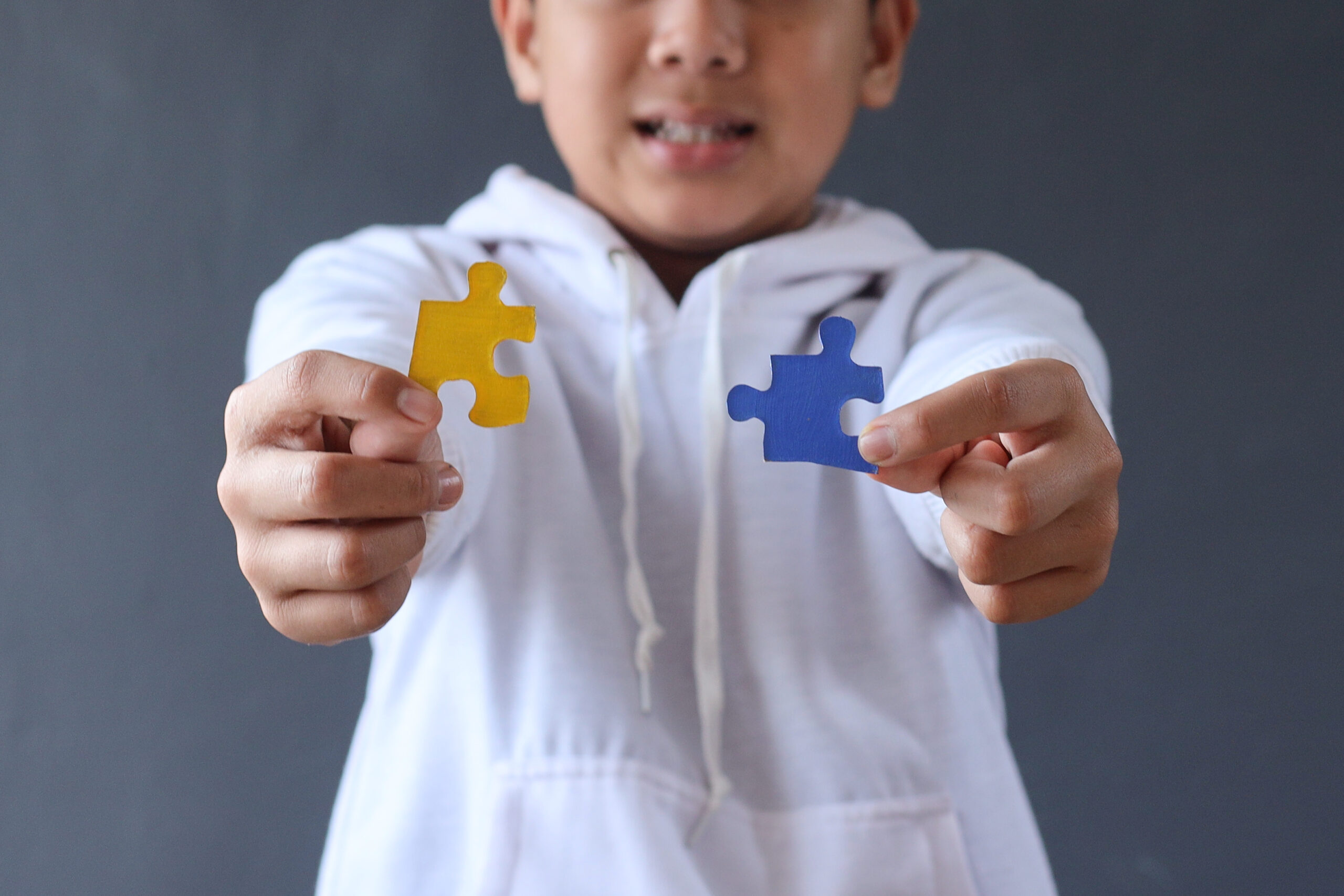Midway Therapy Center (MTC) provides autism and therapeutic services in Saint Paul, Minnesota.



Applied Behavior Analysis (ABA) is an evidence-based therapy that encourages behavioral medication for those who have been diagnosed with autism spectrum and related disorders. These treatment plans offer behavioral, cognitive, social, and executive functioning training, which allows those with autism spectrum and their families and caregivers to succeed and grow over time.
Autism spectrum behaviors can require different treatment modalities and might present with varying degrees of severity. Our team of skilled ABA therapists can offer specialized care for children and their families to help them build their skills and their life experiences toward big goals. Being able to encourage those with autism to use foundational concepts based on play and structured learning can help them to have fun and gain independence with ease.
Therapy sessions using this treatment modality will offer children the chance to play and learn at the same time. These sessions are used to encourage curiosity and to help children develop critical skills at the same time. Children who are being treated with ABA therapy will learn these essential skills:
Gross and fine motor skills ABA therapy offers children and their families the chance to pursue happiness, independence, and safety. If you are ready to learn more about our high-quality ABA services, schedule an evaluation with our team of ABA therapists. We are always eager to speak with those who are looking for treatments that will help children with autism spectrum disorder to grow and learn.


Occupational therapy is a major cornerstone of the support that we offer to our patients. This treatment protocol offers support for motor skills, social and physical development, and cognitive growth. The goal of OT therapy is to improve everyday skills and help those with autism and related disorders to become independent. An additional goal is to make sure that they can participate in activities that bring them joy and help them to have fulfilling lives.
What Does OT Do?
OT helps those with autism to focus on play skills as well as self-care. This kind of therapy also helps to craft learning strategies that will allow school and other kinds of environments to be engaging and fun for people with autism spectrum and related disorders. OT therapists will often begin the treatment process by evaluating the patient’s level of ability in all of the areas that can be improved with OT. After this, a treatment plan is created to help the patient to grow and
develop new skills.
The evaluation will look at these factors:
The evaluation process will look at obstacles that can prevent the patient from learning new skills as well. These are focused on as obstacles that need to be removed to improve independence. Common goal examples are things like:
OT sessions are typically half an hour long. Some sessions might be longer to work on specific skills. The skills that are targeted during each session can be utilized and practiced at home when patients are with their family members or caregivers as well. Development of the skills that are needed to thrive and live independently is one of our main treatment goals. We believe that developing the ability to be independent is a key aspect of autism spectrum disorder therapy and support.


Speech and language therapy can address challenges with language and communication that are common to autism spectrum disorders. This therapy can also help patients to improve their verbal and nonverbal communication. Social skills are one of the main areas where autism spectrum patients typically need extra support and help, and our team can offer speech therapy to help them to meet their goals in this area.
Communication and speech-related therapy needs can vary from patient to patient. Some patients who are on the spectrum will not have issues with communication and might not need this kind of therapy. For many others, speech and communication are major aspects of their developmental growth and require support and training. The skills that are targeted during speech therapy sessions will help those with autism spectrum to be better able to communicate
with others, which is helpful for a whole host of reasons.
Common goals for this kind of therapy include working on nonverbal skills like signs or gestures as well as help and support leaning to communicate via alternative methods like the use of technology or pictures.
Speech therapy focuses on these common skills:
This kind of therapy is highly effective for social skills and can also be used to develop alternative communication methods for those who are nonverbal or who struggle to communicate ideas with regular speech. Speech therapy explores the best means of creating a language for patients and their families to use on a daily basis.


Center-based therapy is a variant kind of ABA therapy. In this kinds of treatments, the patient comes to the center and is immersed in therapy with other patients, away from their home environment. This kind of therapy is not based on a one-one therapeutic approach, and is instead designed to help those with autism to interact with others. Some of the sessions that are part of this mode of therapy will help create goals for play, communication, and cooperation with other patients and various members of the treatment team.
There are no two patients that are alike, which means that treatment modalities can vary over time. Most autism spectrum patients will need to do some center-based therapy to develop
social skills and to identify areas where they need to create better coping mechanisms that will be utilized at school or in public places.
Socialization is just as important as individual training, and center-based therapy allows patients to explore this aspect of their development with careful support. This kind of treatment can also be ideal for those who have outside caregivers involved in their daily lives. Learning the socialization and group therapy goals for their child can help them improve their experiences at school, the park, and with siblings or friends.
Center-based therapy is designed to help patients to be pushed out of their comfort zone and to learn to cope with daily challenges that come up in real life regularly. This is the perfect environment for this kind of treatment, as staff members are present during each interaction, helping to guide patients and identify areas where growth or skills development are required.
Professional support staff are part of each of these sessions. Our team will identify strategies to use at home to help patients to thrive outside of their center-based therapy sessions. This is a great opportunity to involve other children or family members in the treatment plan for those with autism spectrum as well. An immersive and challenging experience in the center during therapy sessions can help to develop a treatment plan that will allow those with autism spectrum to thrive in their daily interactions with others with ease.


Patients who come to us for therapy and support cannot live with us full-time. This means that parents and guardians, as well as siblings in the home, need to be aware of the treatment plan and ongoing needs of patients. Our parent-guardian training sessions can help parents and caregivers, as well as other children in the home, to be involved in the treatment planning and goal-setting for patients.
Having an awareness of the needs and goals of the patient, can be key to help those with autism spectrum top thrive outside of treatment sessions. Being shown the right communication skills and the means to encourage engagement and interaction can allow everyone who lives with or cares for the patient to be able to support their growth and development with ease.
Our care team also offers regular support groups and sessions, as well as other resources to allow parents and other family members and caregivers to get the support that they need. Our team believes that autism care and guidance is best delivered by a cohesive group of caregivers and loved ones who have the necessary skills to encourage growth, new experiences, and new skills experiences on a daily basis.
We take a holistic approach to providing autism spectrum support, and we make sure that everyone involved in the care and support of a patient with autism can help them meet big goals with ease.